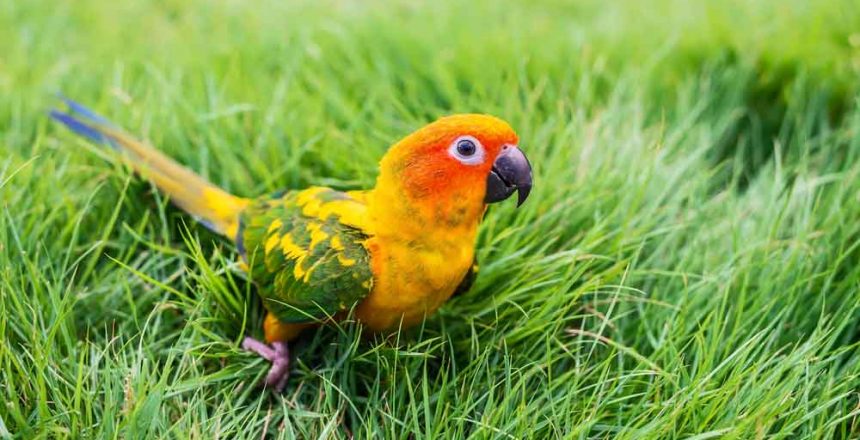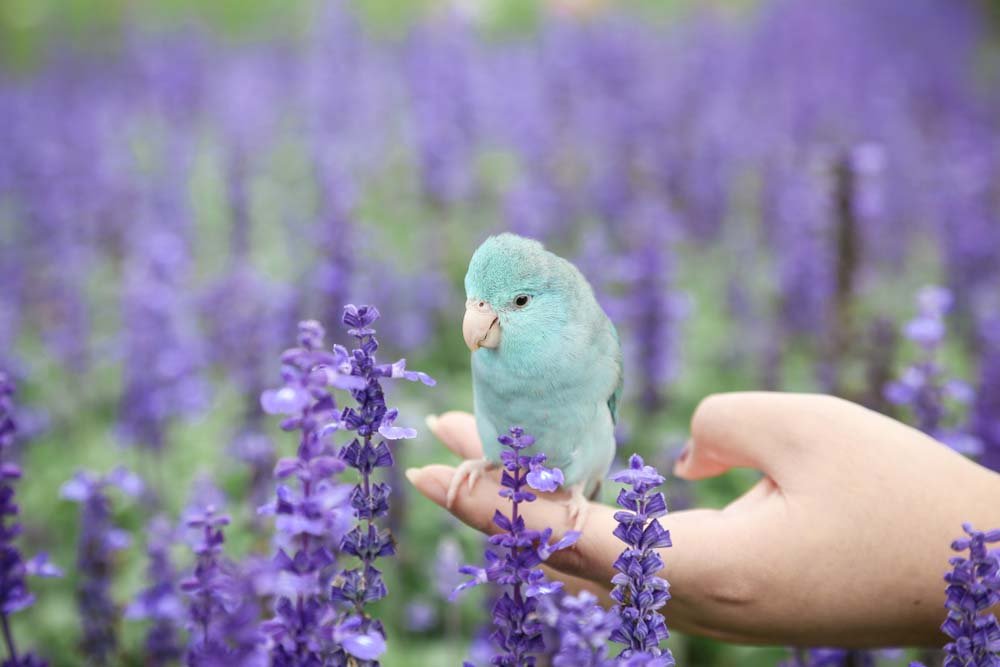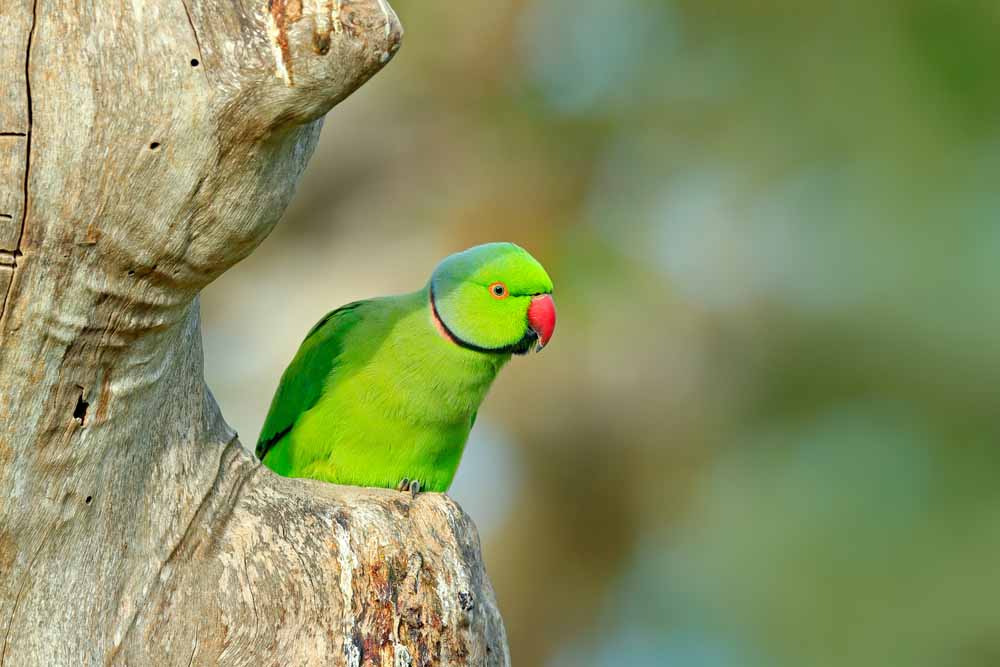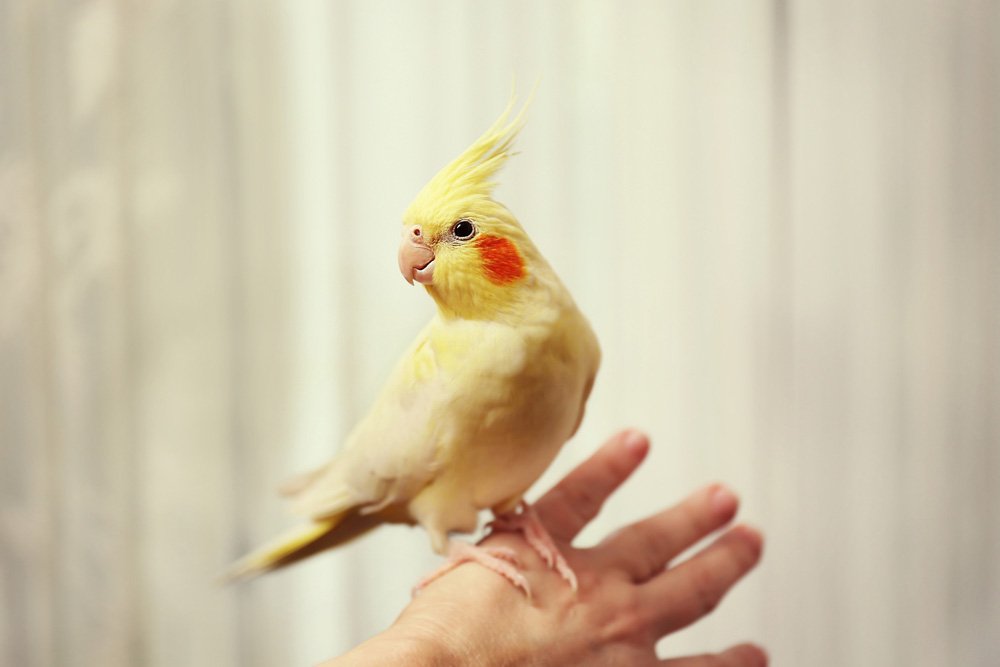The Sun Conure is also known as the Sun Parakeet; its scientific name is Aratinga solstitialis. This bird is considered as the most famous bird species which can be raised as pet bird in apartment but it requires proper care, regular veterinary visits, and daily interaction ; this is due to several reasons – in its personality and appearance- such as the charming looks, vocalization, boldness, smartness, playfulness, companionship and its adventurous nature with other endearing characteristics. The sun conure is a medium-size parrot; mature birds are about 12 inches in length, from the beak to the tip of the tail. On average, they weigh about 4 ounces.
Habitat and Distribution
Sun conures live in a relatively small region of northeastern South America, including: Venezuela, northern Brazil, and Guyana. They are mostly found in tropic habitats. The sun conure also may inhabit dry savanna woodlands and coastal forests/ fruiting trees and palm groves.
How to take care of a Sun Conure
Diet: like all parrots, Sun Conure needs a nutritionally balanced diet in order to stay healthy. In the wild, sun parakeet is very social and typically occurs in large flocks of 20 to 30 individuals mainly feed on seeds, fruit, vegetables, and insects because it requires more protein intake during the breeding season.
In captivity, its nutrition should include nuts- should give your Conure small amounts of nuts with low in salt- (hazelnuts, macadamia nuts, peanuts and brazil nuts), seeds, breed, biscuits, fresh fruits (apples, strawberries,…), fresh vegetables (peas, potatoes,..) ; in addition to pelleted bird food like : Classic Avi-Cakes for Small Birds, Fruit Delight Avi-Cakes for Small Birds and Tropical Fruit Nutri-Berries for Conures.all this will provide your conure’s diet with important vitamins and minerals.
[thrive_leads id=’1231′]
Try as much as you could to buy organic food and wash them with water then cut them to small pieces, but do not feed avocados, cocoa and onions to your bird because as we always say they are poisonous. After your conure finished eating you should remove any remaining food.
Cleanliness of your conure: An important way to interact with you conure is to help it take bath or use spray bottle then you can put your conure gently close to you until becomes dry.
Conure’s cage: choose a cage which will make your conure free to play and move, make sure the cage has fairly narrow bar spacing to prevent the bird from getting its head stuck, and consider some space for his toys. The location of the cage is very important too, you can put its cage in a place far from sunlight and the kitchen and its fumes or any other fume like, -perfume, aerosols, and fumes of cleaning products- because they are toxic to conures.
Place two perches and two or three dishes in the cage, and it is preferable to locate one perched near to the dishes of water and food. You have to clean the cage and everything inside it regularly.
There is a serious point, that is enriching your conure’s cage with toys (foraging toys, wooden chew toys, and shredding toys) to keep the conure busy if not it will lead to aggressive behavior like feather picking.
Sounds: Talk with your conure in a calming and smooth way throughout the day to gain its trust. Conures are able to learn about 5 to 10 words while teaching the conure you should turn off all things that may distract it such as radio, television, phone; the words or phrases you will teach him are better to be simple and try to link them with action or objects. Their loud, shrill call is used to bring attention to important situations.
Behavior: conures like to create their own tricks. If you like to have a positive and fun relationship with your conures, that’s why they require training. Positive reinforcement techniques can be used to train. Sun conures require constant mental stimulation and social interaction, they are easily trained. The bird is not without assertiveness, though; it can turn aggressive suddenly if it is provoked but when your conure is excited or is trying to copy your movements, it will sway back and forth.
How to know a sun conure is right for you
- If you like social birds then a conure is proper for you.
- Determine if you are willing to make a long-term commitment to caring for a sun conure because its lifespan is about 30 years.
- Know if you can live with the noise.
- Chewing is a way to explore things for sun conures, so you need to know if you can deal with it.
- They may nip if they are stressed, tired or afraid.
- Time and money- to buy the cage, toys, food…- are two essential elements to raise a bird so you need to know if you can provide them.
- Take your family into consideration.



